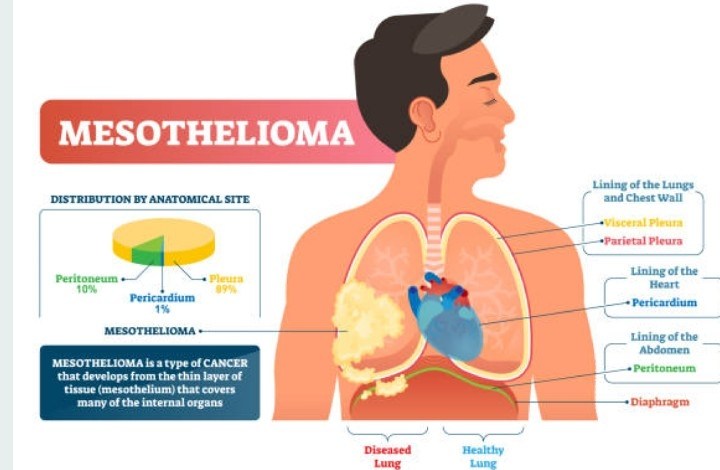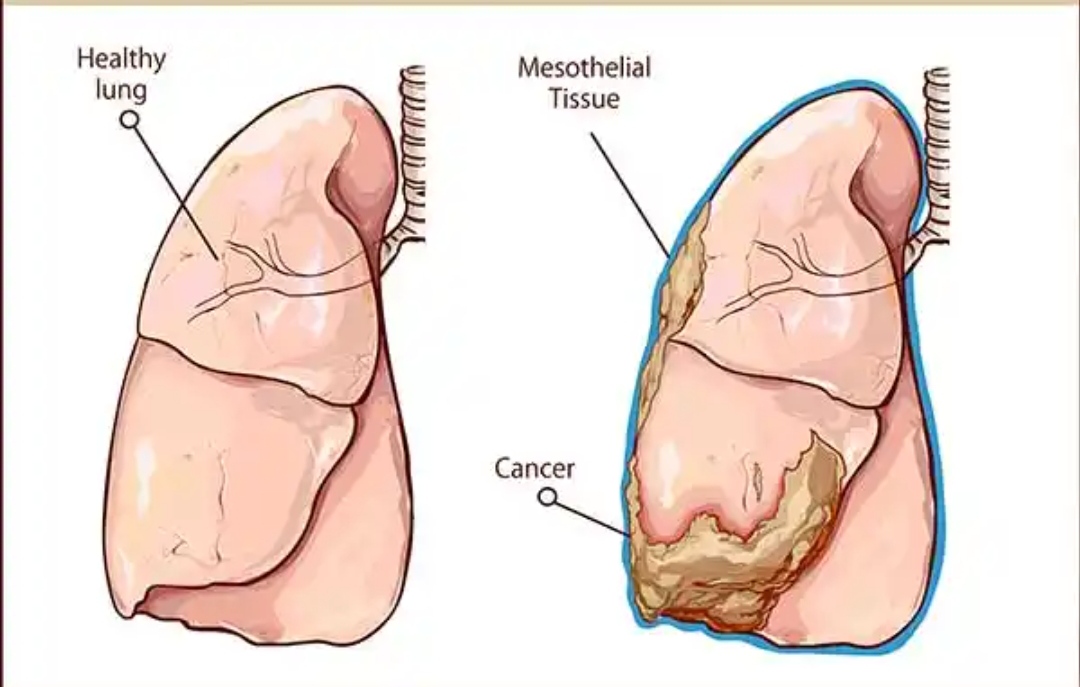Signs and symptoms of mesothelioma
The symptoms of mesothelioma vary depending upon the location, type and stage of the cancer. Unfortunately, early in the course of the disease, many people have no symptoms, and the tumor can be difficult to see on X-ray examination.
In approximately 85% of patients, mesothelioma arises in the membranes surrounding the lungs (malignant pleural mesothelioma). A collection of fluid around the lung, termed a pleural effusion, may be present. Symptoms may include shortness of breath or difficulty breathing (dyspnea), chest pain, or a chronic cough due to pleural effusion. Difficulty swallowing (dysphagia) can also occur, but is usually a late complication. A mass in the chest wall or unusual lumps of tissue under the skin of the chest may develop in some cases.
When the membrane surrounding the stomach is affected (peritoneal mesothelioma), symptoms may include unexplained weight loss, abdominal pain, nausea, vomiting, diarrhea, loss of appetite, low levels of circulating red blood cells (anemia), and abnormal accumulation of fluid (ascites) in the space (peritoneal cavity) between the two layers of the membrane (peritoneum) that lines the abdomen. Small bowel obstruction may occur, usually as a late complication of the disorder.
When the membrane surrounding the heart is affected (pericardial mesothelioma), heart rhythm abnormalities or low blood pressure may occur. Chest pain and breathing difficulties can also occur with pericardial mesothelioma.
Individuals with mesothelioma may also experience general symptoms including fever, weakness, night sweats, unexplained weight loss, and a general feeling of ill health (malaise).
In extremely rare cases, mesothelial tissue lining the testicles can give rise to mesothelioma. This tissue is part of the peritoneal mesothelium that extends into the scrotum.



